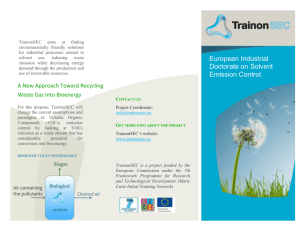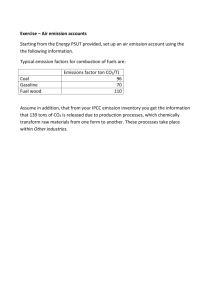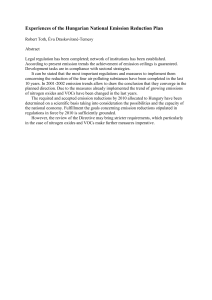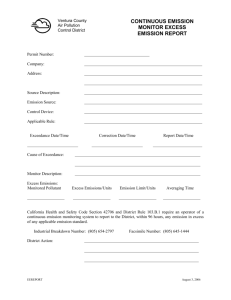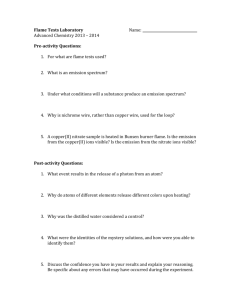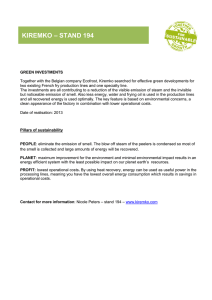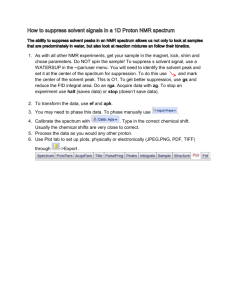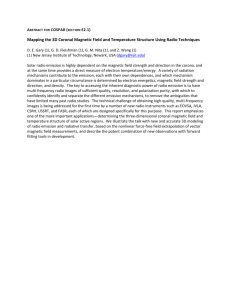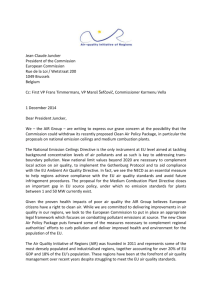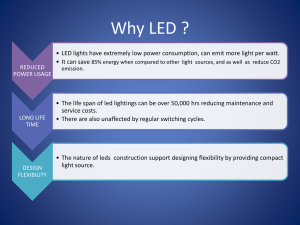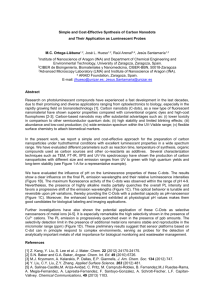Flyer_General_v2 - TrainonSEC Project
advertisement
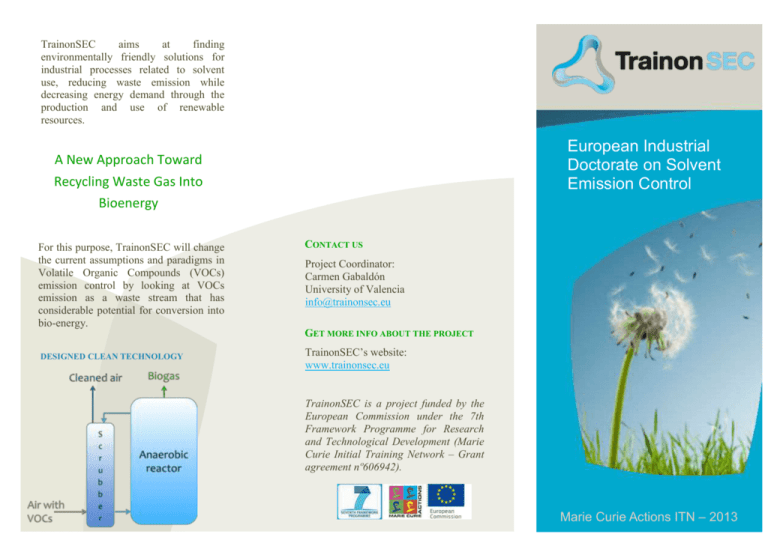
TrainonSEC aims at finding environmentally friendly solutions for industrial processes related to solvent use, reducing waste emission while decreasing energy demand through the production and use of renewable resources. European Industrial Doctorate on Solvent Emission Control A New Approach Toward Recycling Waste Gas Into Bioenergy For this purpose, TrainonSEC will change the current assumptions and paradigms in Volatile Organic Compounds (VOCs) emission control by looking at VOCs emission as a waste stream that has considerable potential for conversion into bio-energy. CONTACT US Project Coordinator: Carmen Gabaldón University of Valencia info@trainonsec.eu GET MORE INFO ABOUT THE PROJECT DESIGNED CLEAN TECHNOLOGY TrainonSEC’s website: www.trainonsec.eu TrainonSEC is a project funded by the European Commission under the 7th Framework Programme for Research and Technological Development (Marie Curie Initial Training Network – Grant agreement nº606942). Marie Curie Actions ITN – 2013 PROJECT FULL TITLE: European Industrial Doctorate on Solvent Emission Control: A New Approach Towards Recycling Diluted Waste Gases Into Bio-Energy. START DATE: 01/09/2013 DURATION: 48 months TrainonSEC is a project involving four institutions: About TrainonSEC HOW WILL THIS BE ACHIEVED? WHAT IS THE OBJECTIVE OF TRAINONSEC? Our objective is to develop an innovative anaerobic technology that produces biogas from these VOC, in order to recycle diluted waste into energy. This novel bioprocess will allow industries to: comply with the European solvent emission directive, generate up to 50% of the total energy demand for the production facility, therefore reducing fossil fuel consumption. A joint collaboration between: academia (University of Valencia) and industry (Pure Air Solutions) is our proposed approach to face the challenges related to innovation in the control of industrial air emissions, resulting in the TrainonSEC project. TrainonSEC offers to four early stage researchers (ESRs) the opportunity to receive research training through four Individual Projects, each covering an important aspect of the objective. The shared research training between the participants, including complementary training by targeted secondments at associated partners, is giving the ESRs a fundamental understanding of this clean biotechnology and a practical understanding of the limitations and opportunities associated with the exploitation of a new technology. the Research Group of Environmental Engineering of the University of Valencia in Spain, specialists in the field of biotreatment of polluted air. Pure Air Solutions from the Netherlands, a highly innovative company providing new technologies for air pollution treatment. Altacel Transparent, a Dutch company which include the problemowner perspective. Ekwadraat from Holland, expert in renewable energies & energy efficiency;
